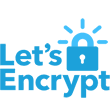What SSL/TLS/HTTPS Is And Why It’s Important
When you visit a website or fill out a form, a connection is made between you and the web server to transmit data in between. If not properly encrypted, this data can potentially be intercepted, spied upon, stolen and even tampered with as it traverses the internet. HTTP, the protocol used to transmit data over the internet, is unencrypted by default.
SSL (Secure Sockets Layer) is a suite of cryptographic protocols designed to encrypt the connection between a user’s browser and the web server. It safeguards your visitors by creating encrypted connections between them and your website, protecting their privacy and the data they share with you over the internet. Combine HTTP with SSL and you get HTTPS, a bi-directionally secure way of accessing information. SSL is the predecessor to TLS (Transport Layer Security), but they are both frequently referred to as SSL.
As a website owner, if you want to enable encryption, you’ll need obtain a secure certificate from a trusted party that’s been authorized to issue them such as Let's Encrypt and Sectigo. In addition to a minor SEO bump, there are two huge benefits that HTTPS brings:
- Encryption: Your data is securely encoded so it can’t be read by third parties.
- Authentication: You know that the site you’re dealing with is who they say they are.
SSL certificates are what make both of these things possible. Certificate authorities authenticate site ownership to varying degrees as part of the process of issuing certificates. The certificates themselves then enable the encryption of data between your server and a user’s browser.
A valid SSL-enabled website will have https:// in the URL and a padlock will be displayed in the address bar of your browser. In the case of an Extended Domain Validation Certificate, you’ll also see a green visual indicator being deployed. Each site is issued a unique SSL certificate. If a website is pretending to be on HTTPS but it’s certificate doesn’t match, or not professionally signed, then the browser will warn the user from connecting to the site.
Safety and security is a vital aspect to consider when hosting your website on the internet. HTTPS makes your website secure for your users and has traditionally been recommended largely for ecommerce sites in the past. The reality for website owners, however, is that every site that has a control panel (such as WordPress or other CMS based site) deals with the transmission of sensitive information, in the form of your login details if nothing else. This is why securing communication with HTTPs has now become a standard.



